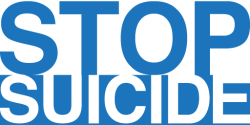by Melissa Howard ⎸melissa@stopsuicide.info


In today’s fast-paced world, managing your finances effectively is key to a stress-free life. By implementing strategic practices, you can secure financial health and peace of mind. This guide shared courtesy of Dr. Jamie Rishikof is designed to empower you with essential tips and insights, enabling you to navigate the complex world of personal finance with confidence.
Vigilance in Expense Tracking
You must become a meticulous overseer of your expenditures. Embrace technology by utilizing budgeting applications or simple spreadsheets. The clarity gained from seeing your spending patterns can be illuminating and transformative. It’s not merely about tracking; it’s about understanding and then controlling where every dollar is allocated.
The Art of Effortless Saving
Imagine a system where saving becomes second nature. By setting up automatic transfers to your savings account, you’re ensuring a consistent and disciplined approach to saving. This method is especially effective as it happens in the background, silently fortifying your financial future.
Get Ready for Tax Season
Being prepared for tax season is crucial to ensure a smooth and stress-free experience. Start by gathering all necessary documents, beginning with a tax documents checklist, which includes items such as W-2 forms, 1099 forms, and receipts for deductions. Familiarize yourself with your tax bracket, tax deadlines, and the specific documents required for your situation. If you’re self-employed, maintain accurate records of your expenses and collect Forms 1099, Schedules K-1, and income records to verify amounts not reported on 1099-MISC or 1099-NEC. By staying organized and informed, you can tackle tax season with confidence and minimize the risk of errors or delays.
Pruning Unnecessary Expenses
It’s time to scrutinize your subscriptions and memberships. This periodic audit could reveal surprising expenses that no longer serve you. Eliminating these can redistribute funds to more crucial areas of your budget, optimizing your financial resources. Regularly reviewing your ongoing expenses can also uncover hidden costs or rate increases. This proactive approach ensures you’re only paying for what truly adds value to your life, maximizing your budget’s effectiveness.
Refined Spending Habits
You hold the power to redefine your spending habits. Identifying non-essential expenditures offers a chance to reinvent your financial strategy. This could mean dining out less, curbing impulse buys, or seeking cost-effective alternatives, thus freeing up considerable financial resources over time. Small changes, like brewing coffee at home or using public transportation, can result in significant savings. Additionally, this disciplined approach can lead to a more mindful lifestyle, reducing waste and enhancing your appreciation for what you have.
Sacred Emergency Reserves
Your emergency fund is a bastion of financial security. It’s essential to view this fund as untouchable for everyday expenses. Its sole purpose is to provide a buffer in times of unexpected financial upheaval, safeguarding you against potential financial crises. Consistently contributing to this fund, no matter how small the amount, can build a robust financial safety net. Remember, this fund should only be accessed for genuine emergencies, ensuring that you’re prepared for life’s unpredictable moments.
Financial Stability and Mental Wellbeing
Understand that your financial health is inextricably linked to your mental wellbeing. The burden of financial stress can lead to serious mental health issues, including anxiety and depression. Therefore, managing your finances is not just about numbers; it’s about nurturing your overall health and happiness. Achieving financial stability can provide a sense of control and reduce anxiety, enhancing your mental health. Regular financial check-ins can be as beneficial for your mental health as they are for your financial health.
The Tangibility of Cash Spending
There’s something profoundly impactful about using cash for purchases. This tactile experience of money can foster a more mindful and deliberate approach to spending. When you physically hand over cash, it prompts a deeper reflection on the value and necessity of each purchase. This method helps in curbing mindless spending and encourages you to evaluate whether a purchase truly aligns with your financial goals. Over time, this practice can significantly alter your spending behavior, leading to a healthier financial lifestyle.
Your journey to financial wellness is a continuous process of learning, adapting, and growing. By implementing these strategies, you are not just managing your finances; you are taking control of your life. Embrace these practices, and watch as your financial health transforms, bringing with it a newfound sense of freedom and peace.
